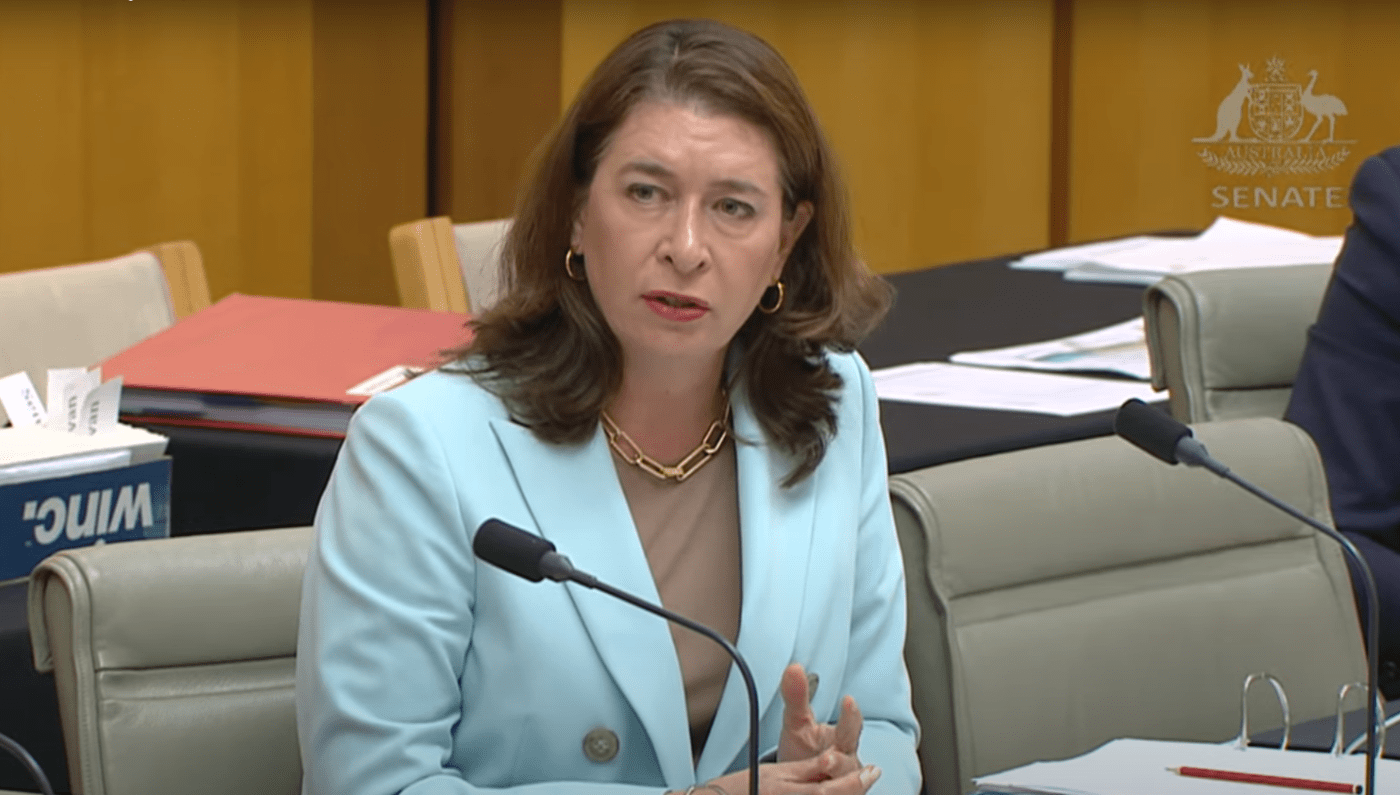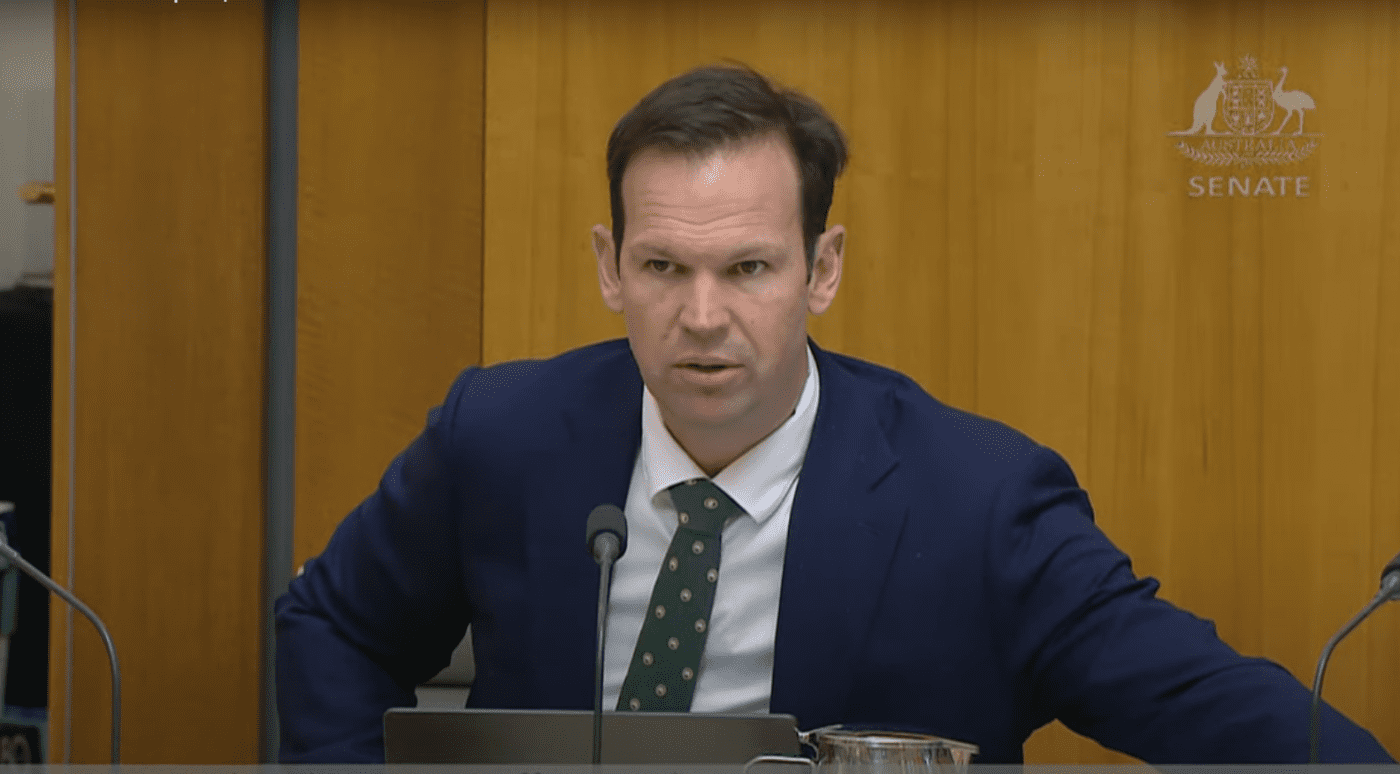TWO Nationals Senators have raised concerns about the Federal agriculture department’s handling of a wave of new climate-related administrative rules being placed on the agriculture sector.
Questioning department bosses at today’s Senate estimates hearings, Matt Canavan and Susan McDonald highlighted a lack of detail on mandatory emissions reporting and questioned the approach to a recently cancelled carbon methodology.
All three pieces of legislation have been a significant focus of industry groups over the past year, with concerns they will place costly administrative burdens on producers while taking away any potential benefits.
Lack of detail on mandatory climate disclosures
With the Federal Government recently legislating mandatory emissions reporting for large companies and their supply chains, Senator Canavan asked how many agricultural businesses will be caught up in the legislation.
The panel did not provide direct answers to the question, saying 1800 businesses economy-wide are expected to be covered.
“That is in comparison to the 87,000 farmers in Australia,” Department deputy secretary Matt Lowe said.
As Beef Central reported last week, the rollout of the climate disclosures will be staged over three years, with many agricultural businesses directly impacted by 2027.
However, the more widespread impact of the mandatory reporting is the requirement for producers supplying big companies like banks, processors and supermarkets to report their methane emissions as part of ‘Scope 3’ requirements.
“We have established meatworks will have to do this, which covers almost every producer in the country,” Mr Canavan said.
With what will be required of farmers and how much it will cost them in discussion, Nick Blong from the Department’s climate division said the industry had developed a lot of its own emissions accounting tools over the past decade.
“This is a Government program, so don’t try and avoid responsibility of this,” Mr Canavan said.
Senator McDonald said the climate accounting was already flowing through to producers, with companies like Nutrien and Elders asking producers for the information.
“Each of the big banks are telling me they are putting on something like 500 employees to cope with this,” she said.
Government undermining industry
The new laws came into place shortly before the Government cancelled a carbon methodology that incentivises producers to reduce methane emissions by improving the efficiencies of their herd – like increasing calving rates or daily weight gains.
Senator McDonald said the Government was placing costs on producers through the climate disclosures and taking away benefits.
In response to comments from Mr Lowe about the integrity of carbon farming methodologies needing to stand up to domestic and international scrutiny, Senator McDonald said she was concerned the Ag Department was being influenced by other departments.
“The Beef Herd Methodology has just been suspended, undermining the credibility for the work that has been done”
“To say they have to be integrity systems, of course they do, but only as long as the departments are supporting farmers in this – and I don’t seeing that happening.
“Instead, farmers are saying ‘why would we spend another dollar on emission reduction when our own Government is undermining the credibility of Beef Herd Methodology’.
“I know this is not your problem, but I am worried that other departments are giving you talking points that aren’t supported by their actions.”



The claim that only 1800 businesses economy wide are likely to be covered is dubious. Under the legislated phase in, by July 1, 2027 any business with turnover of $50 million and gross assets of $25 million will be required to report. There has been substantial consolidation in agricultural supply chains over the last 20 years and a cursory analysis of a common agricultural supply chain indicates that up to 80% of up and downstream farming counterparties will be caught in this reporting net.
Many agricultural businesses are high turnover, low margin operations – meaning it will not be difficult for relatively modest trading operations to hit the reporting thresh-hold. The requirement of $25 million in gross assets is a joke. At a minimum it should be $100 million but more like $250 million to ensure the reporting regime is not perversely affecting small operators.
Mandatory reporting will catch companies from the large supermarkets, processors etc in the early stages (right now) through to rural merchandise, feed manufactures, farm equipment suppliers, fuel distribution, feed lotters, ag vet suppliers and on and on.
If compliance costs are to be around $1.3 million (figure quoted by David Littleproud) for each reporting business annually across the majority of supply chain participants, the additional costs to be borne within the chain is astronomical.
Producers can expect to be under massive price pressure as will consumers who will see food prices increase dramatically.
Who is going to own the data being collected from producers? What is going to be done with that data? The federal government seems very keen on capturing emissions data but has showed no interested in the corresponding sequestration piece. This points to the objective of this data collection program being a future punitive taxation regime to force down agricultural emissions.
One thing is certain – compliance costs of a poorly thought-out emissions reporting scheme coupled with punitive taxes on emissions and no recognition of sequestration and/or biogenic carbon cycle occurring on farms will definitely see agricultural emission reduce to almost zero. No business will be financially viable, and all supply chain participants will cease operating.
If the Federal Government was serious about combatting climate change, they would be investing serious money in science research to better understand the sequestration side of the equation. They will also credit the sequestration that has occurred via the thickening of natural vegetation on producers’ properties to the land -owners balance sheet rather than their own….
The entire carbon accounting industry is a cluster …. Producers need sensible, consistent protocols that support improved productivity. ( production of output, land development, economic improvement) Focusing 100% on carbon emissions is folly.
Climate change has been happening for millions of years. It’s natural. Catastrophic climate change is nonsense. Australia’s theoretical contribution to this human induced climate change is miniscule, so why destroy our economy to achieve nothing when India, China and Russia do nothing at all?
Totally agree, this is madness and destroying so much good agricultural land, not to mention that these renewables will have to be “renewed” in a few years.